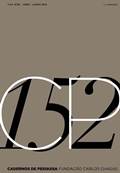Elderly carers, networks and strategies in the use of social programs
Keywords:
Elderly women, Care, Family, Social PolicyAbstract
In this article we identify the specific situations that experience those old adult women who take charge of attending their relatives, also elderly, with serious health problems. To this purpose we interviewed family attendants that, due to this situation of caring, needed the support of specific social programs. The interviews have had the purpose of detecting the strategies they have devised to give answer to the needs of the dependent elder, the costs just economic as well as emotional and of health that these strategies imply for the attendants and an evaluation of their success or failure in relation with the life quality of the elder attended and the elder attendant. To this end, the type and support networks in the care, the family tensions, the financial aspects (the weight in the family budget) and the role of the community resources are analysed.
Downloads
References
ATKINSON, Martin; HAMMERSLEY, Paul. Etnografías: métodos de investigación. Barcelona:
Paidós, 1994.
BERTAUX, Daniel. Historias de casos de familias como método para la investigación de la
pobreza. Revista de Sociedad, Cultura y Política, Buenos Aires, v. I, n 1, p. 10-21, jul. 1996.
BOURDIEU, Pierre. La miseria del mundo. Madrid. Fondo de Cultura Económica. 1993
CEPAL. Panorama social de América Latina. Naciones Unidas, 2013. (Documento Informativo 893)
CHAPPELL, Neena. The sociological meaning of caregiving and social support: issues for older
people, the family and community. Sociology of Aging. International Perspectives, Melbourne, ISA, p. 148-151, 1996.
CLIFFORD, James. Sobre la autoridad etnográfica. In: REYNOSO, Carlos (Comp.). El surgimento de la antropología posmoderna. 4. ed. España: Gedisa, 1998. p. 141-170.
COLEMAN, James. Foundations of social theory. Cambridge: Harvard University Press, 1990.
COULON, Alain. Ethnomethodology. New York: Sage, 1995. (Qualitative Research Methods, v. 36).
DABAS, Elina. Red de redes. Las prácticas de la intervención en redes sociales. Buenos Aires:
Paidós, 1993.
DELICADO USEROS, María Victoria. Características sociodemográficas y motivación de las
cuidadoras de personas dependientes ¿perfiles en transición? Praxis Sociológica, Castilla La
Mancha, n. 10, p. 200-234, 2006.
DURÁN HERAS, María de los Ángeles. Los costes invisibles de la enfermedad. Bilbao: Fundación BBVA, 2002.
ENRIQUE ROSAS, Rocío. Preferencias sobre cuidados en Vejez Avanzada en México: diagnóstico, dilemas y desafíos en contextos de pobreza en tres Estados de la República. En: MONTES DE OCA, Verónica (Coord.). Envejecimiento en América Latina y el Caribe. México: UNAM, 2013. p. 373-394.
ESPING-ANDERSEN, Gösta. Los tres mundos del estado de bienestar. Valencia: Alfons el Magnanim, 1993.
FLAQUER, Luís. Políticas familiares en la Unión Europea. Barcelona: Institut de Ciencies Politiques i Socials, 2002.
GUZMÁN, José Miguel; HUENCHUAN, Sandra; MONTES DE OCA, V. Redes de apoyo social de personas mayores: marco teórico conceptual. In: Ponencia presentada en Simposio Viejos y Viejas. Participación, ciudadanía e inclusión social. Santiago de Chile, 2003. p. 14-18.
HOLSTEIN, James A.; GUBRIUM, Jaber F. The active interview. Thousand Oaks, CA, US: Sage, 1995.
INDEC. Instituto Nacional de Estadísticas y Censos. Datos del Censo Nacional de Población y
Vivienda. Buenos Aires, 2010.
LOMNITZ, Larissa. Redes sociales, cultura y poder: ensayos de antropología latinoamericana.
México: FLACSO, 1994.
MARTÍN PALOMO, María Teresa. El care, un debate abierto: de las políticas del tiempo al social
care. Cuestiones de género: de la igualdad y la diferencia, León, n. 4, p. 325-355, 2009.
MISHLER, Elliot, Research interviewing: context and narrative. Cambridge: Harvard University
Press, 1991.
MONTGOMERY, Rhonda. Investigating caregiver burden. In: Markides, K. S.; Cooper, C. L.
NEGRO, Milagros Julve. Dependencia y cuidado: implicaciones y repercusiones en la mujer
cuidadora. Acciones e investigaciones sociales, n. 22, p. 260-270, 2006.
ODDONE, María Julieta. Ancianidad, contextos regionales y redes de intercambio. Buenos Aires:
Centro de Estudios e Investigaciones Laborales, Consejo Nacional de Investigaciones Científicas
y Técnicas , n. 27, 1991.
ODDONe, María Julieta; Aguirre, Mónica. A pendular movement betwen the intergenerational pact and exhaustion of support networks in Argentina. In: Paoletti , I. (Ed.) In family caregiving for older disabled people. New York: Nova Science, 2007. p. 35-62.
PAUTASSI, Laura. Perspectivas actuales en torno al enfoque de derechos y cuidado: la autonomía en tensión. In: Pautassi , L.; Zibecchi, C. (Coord.) Las fronteras del cuidado: agenda,
derechos e infraestructura. Buenos Aires: Equipo Latinoamericano de Justicia y Género (ELA) y
Biblos, 2013. p. 99-132.
RAZAVI , Shahra. The political and social economy of care in the development context: conceptual issues, research questions and policy options. Gender and Development Programme. Geneva: UNRISD, Jun. 2007. (Paper Géneve, n. 3).
RODRÍGUEZ ENRÍQUEZ, Corina; Méndez, Florencia. Trabajadoras del cuidado: el caso de
las trabajadoras de casas particulares: ¿Una forma peculiar de informalidad? In: CONGRESO
NACIONAL DE ESTUDIOS DEL TRABAJO, 11., Buenos Aires, Agosto, 2013. Disponible en:
<http://www.aset.org.ar/2013/ponencias/p6_Rodriguez.pdf>. Consultado el: 20 Dic. 2013.
Downloads
Published
How to Cite
Issue
Section
License

This work is licensed under a Creative Commons Attribution-NonCommercial 4.0 International License.
Authors who publish in this journal agree to the following terms:
a. Authors retain the copyright and grant the journal the right to first publication, with the paper simultaneously licensed under the Creative Commons Attribution license that allows the sharing of the paper with acknowledgment of authorship and initial publication in this journal.
b. Authors are authorized to assume additional contracts separately, for non-exclusive distribution of the version of the paper published in this journal (for example publishing in institutional repository or as a book chapter), with acknowledgment of authorship and initial publication in this journal.
c. Authors are allowed and encouraged to publish and distribute their paper on-line (for example in institutional repositories or on their personal page) at any moment before or during the editorial process, as this can generate productive changes, as well as increase the impact and citation of the published paper (See The Effect of Open Access).









